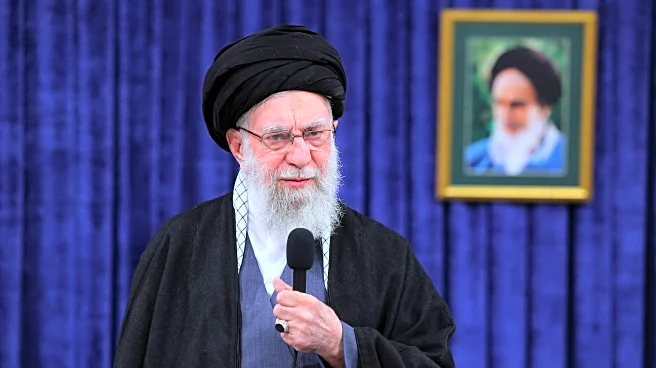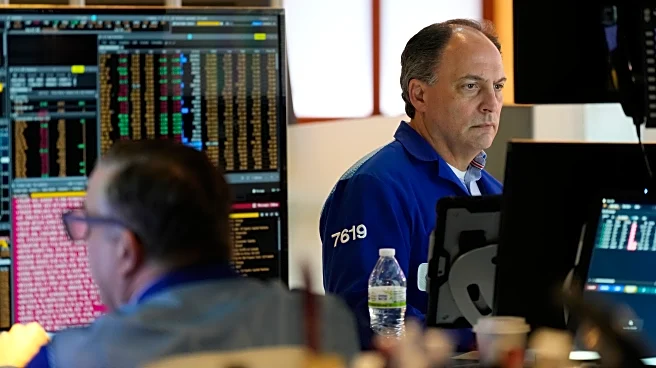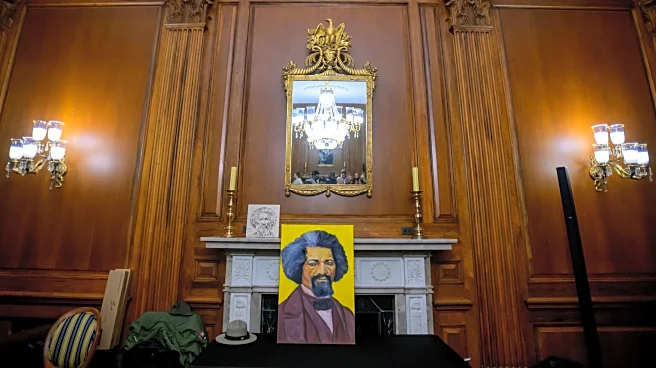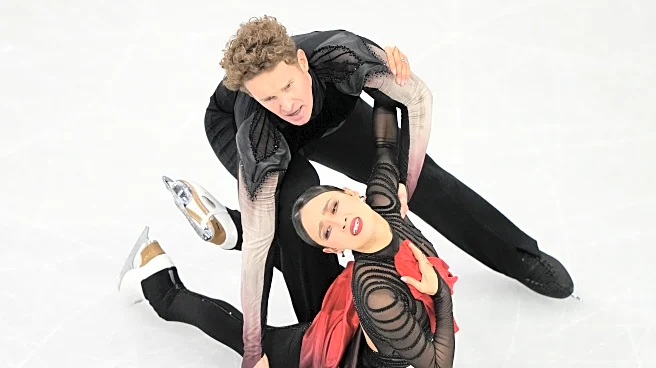What's Happening?
Orlando Pride secured their place in the National Women's Soccer League semifinals with a 2-0 victory over Seattle Reign FC. The match featured a significant moment when Marta, a key player for Orlando Pride,
broke away with the ball in the 95th minute, leading to a penalty. Marta offered the penalty opportunity to her teammate Luana Bertolucci, who had recently returned to football after recovering from Hodgkin's Lymphoma. Luana scored her first goal since her recovery, marking an emotional milestone in her comeback. The victory was celebrated as a testament to resilience and determination, with Marta's leadership playing a crucial role in the team's success.
Why It's Important?
This event highlights the inspiring journey of athletes overcoming personal challenges to achieve professional success. Luana Bertolucci's return to the field after battling cancer serves as a powerful narrative of hope and perseverance, resonating with fans and the broader sports community. The match underscores the importance of support and camaraderie in sports, as Marta's gesture to allow Luana to take the penalty exemplifies teamwork and solidarity. The victory not only advances Orlando Pride in the league but also brings attention to the stories of athletes who face and overcome significant health challenges, potentially influencing public perception and support for cancer survivors.
What's Next?
Orlando Pride will await the outcome of the match between Kansas City Current and Gotham FC to determine their opponent in the semifinals. The team will continue to prepare for the next stage of the competition, focusing on maintaining their momentum and building on the emotional victory. Stakeholders, including fans and sponsors, are likely to rally around the team, inspired by the narrative of resilience and triumph. The upcoming matches will be crucial for Orlando Pride as they aim to secure a spot in the finals and potentially win the championship.
Beyond the Headlines
The story of Luana Bertolucci's return to football after cancer recovery may inspire broader discussions on the support systems available for athletes facing health challenges. It raises awareness about the importance of mental and physical health resources in sports, encouraging leagues and teams to prioritize these aspects. Additionally, the event may influence cultural perceptions of cancer survivors, highlighting their strength and capability to return to professional sports, thereby challenging stereotypes and promoting inclusivity.










